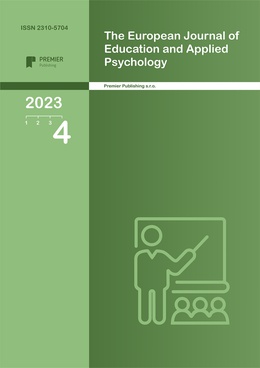LINGUISTIC AND METHODOLOGICAL BASES OF IMPROVING THE PROFESSIONAL COMMUNICATIVE COMPETENCE OF PHYSICS STUDENTS IN ENGLISH CLASSES
Authors
Mahbuba Holmatova

Share
Annotation
The professional competence of a specialist is a complex structure of a person, which determines his activity, and is a combination of general cultural, professional knowledge, skill, skills, professional creative approach, social orientation of a person, in general, the effect of professional tasks, which provides a solution. According to its essence, the professional competence of a specialist consists of knowledge: functional (knowledge of the principles of organization of various fields of science), practical knowledge of action (methodical and technological) and the individual's own knowledge. This article discusses linguistic and methodological basis of improving professional communicative competence of physics students in ESP teaching.
Keywords
Authors
Mahbuba Holmatova

Share
References:
Galperin, P. Y. (2003). An Experimental Study In The Formation Of Mental Action 1. In Psychology in the Soviet Union Ils 272 (pp. 213-225). Routledge.
Grishina, I.V. (2004). Professional competence of the school director. Abstract of DSc dissertation. Moscow.
Holmatova, M. (2022). Analysis of the concept of educational content in English (on the example of the field of physics). In Sovremennaya nauka: aktual'nye voprosy, dostizheniya i innovacii (pp. 14-16).
Holmatova, M. (2022). Improving professional communicative competence of future specialist-physicists in English. In Aktual'nye voprosy sovremennoj nauki i obrazovaniya (pp. 216-218).
Kasimova, F. A., & Dzhuraeva, F. B. (2022). ЎZBEKISTONDA PEDAGOG KASBIJ KOMPETENTLIGINING ЎZIGA HOS HUSUSIYATLARI. Vestnik nauki, 1(5 (50)), 29-33.
Leont’ev, A. N. (1959). Problems of mental development. Moscow: Publishing House of the Academy of Pedagogical Sciences RSFSR.
Leont’ev, A. N., & Luria, A. R. (1968). The psychological ideas of L. S. Vygotskii. In B. B. Wolman (Ed.), Historical roots of contemporary psychology (pp. 338–367). New York: Harper & Row
Nazarova, B. (2014). SOCIAL-PEDAGOGICAL SIGNIFICANCE OF FUTURE TEACHER’S SCIENTIFIC WORLD-VIEW. The Advanced Science Journal, (8), 4.
Slastenin, V. A., Isaev, I. F., & Shiyanov, E. N. (2002). Pedagogy. textbook. manual for students. higher. ped. studies. institutions/VA Slastenin, IF Isaev, EN Shiyanov. M.: Academy.
Tatur, Y. G. (2004). Competence in the structure of the quality model of specialist training. Higher education today, 3, 20-26.
Vygotsky, L. S. (1966). Development of the higher mental functions. In A. N. Leont’ev, A. R. Luria, & A. Smirnol (Eds.), Psychological research in the U.S.S.R (Vol. 1, pp. 11–54). Moscow: Progress. Original work published 1931.


